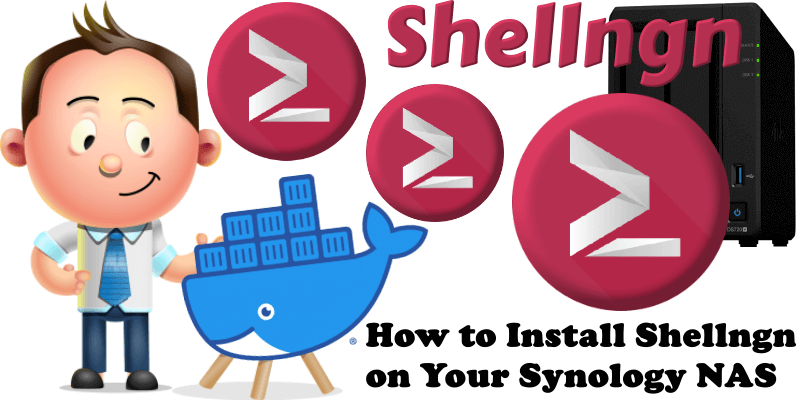
Manage your servers from your browser: Shellngn is a web-based SSH Client with SFTP, Telnet, VNC, and RDP support. Shellngn comes with a 10-day free trial after which you need to buy a license. The license for a year is under 50$. I personally consider the Shellngn web-based SSH Client a good solution. It’s worth a try if you need a client like this for your day to day work. In this step by step guide I will show you how to install Shellngn on your Synology NAS using Docker.
STEP 1
Please Support My work by Making a Donation.
STEP 2
Install Container Manager via Synology “Package Center”. If you run an older DSM version (under 7.2), search for Docker instead of Container Manager.
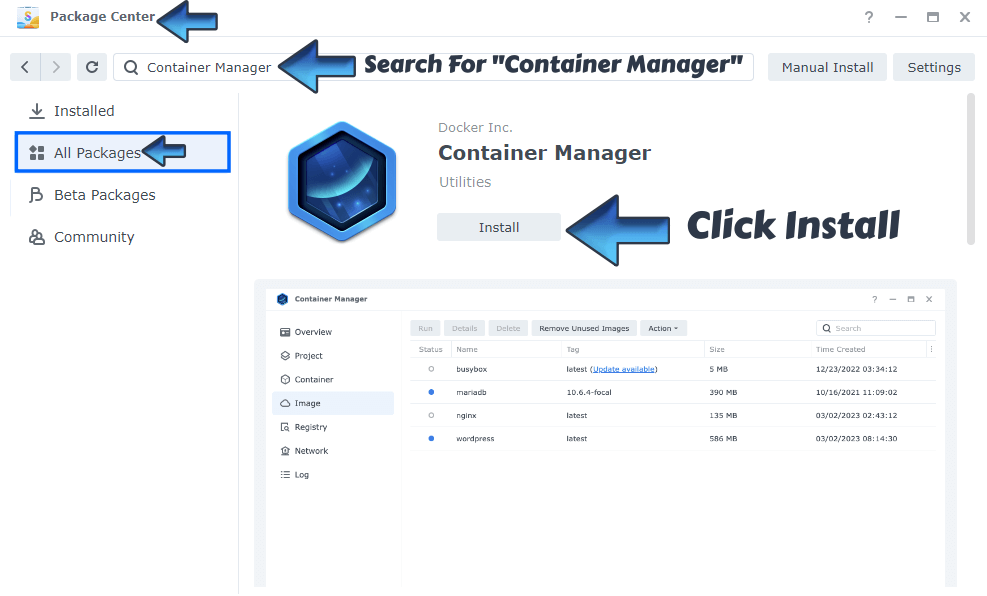
STEP 3
Go to Control Panel / Task Scheduler / Create / Scheduled Task / User-defined script. Follow the instructions in the image below.
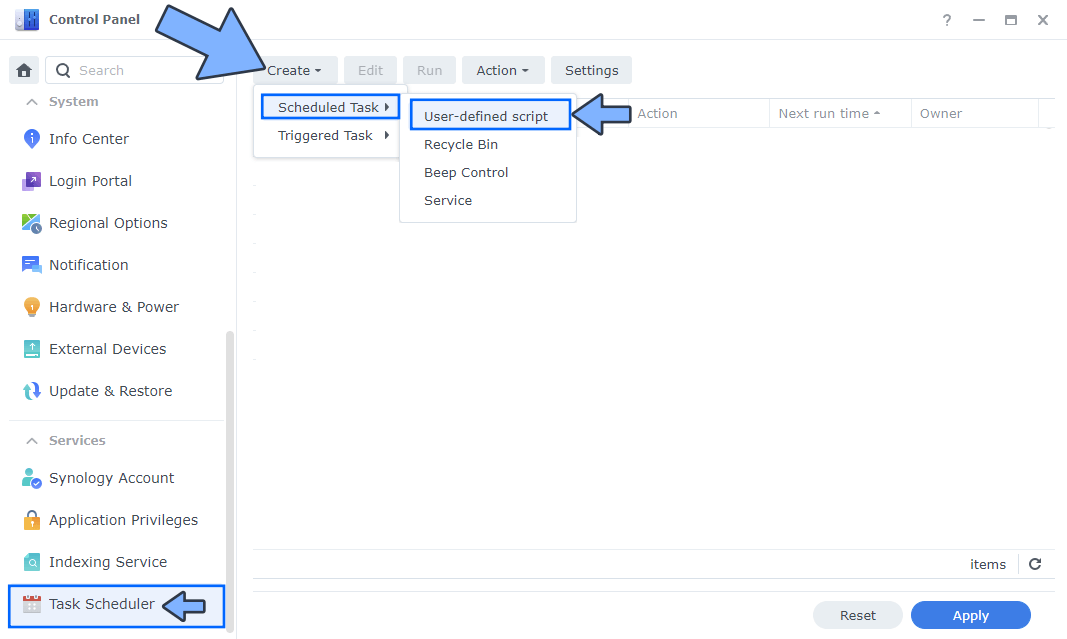
STEP 4
Once you click on User-defined script, a new window will open. Follow the instructions below:
- General: In the Task field type in Install Shellngn. Uncheck the “Enabled” option. Select root User.
- Schedule: Select Run on the following date then select “Do not repeat“.
- Task Settings: Check “Send run details by email“, add your email then copy paste the code below in the Run command area. After that, click OK.
docker run -d --name shellngn \ -p 4199:8080 \ --mount source=shellngn-data,target=/home/node/server/data \ --restart always \ shellngn/pro
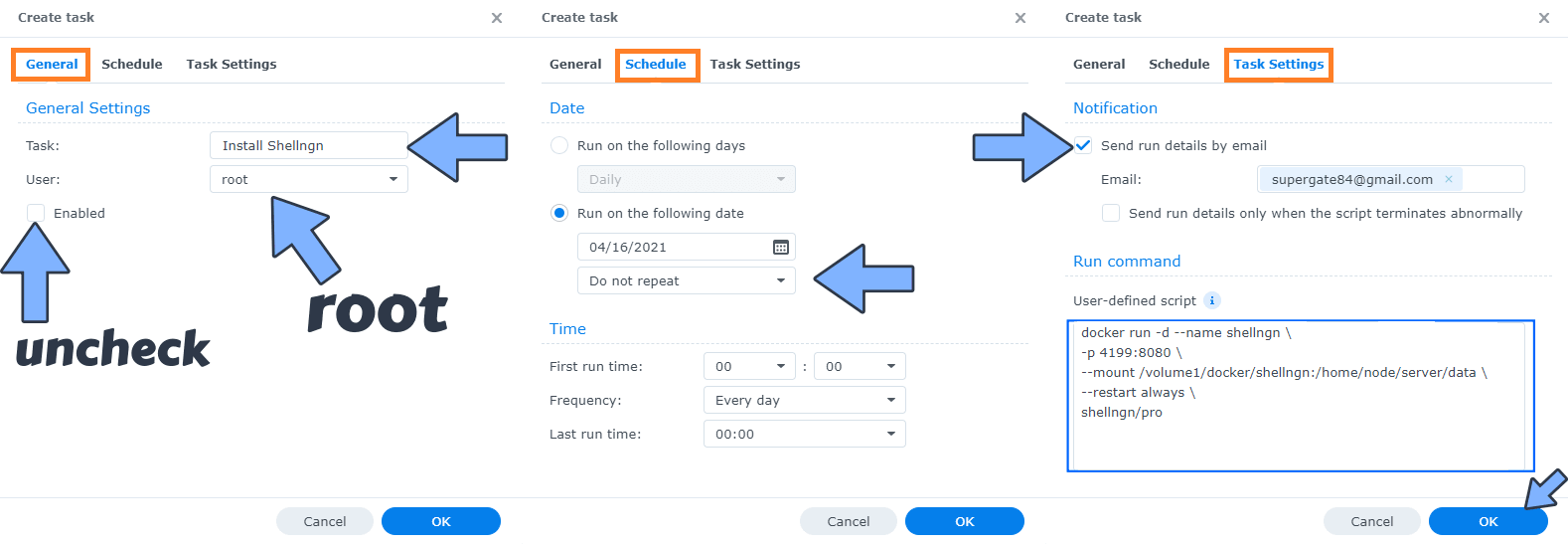
STEP 5
After you click OK on STEP 4 a new warning pop up window will open. Click OK.
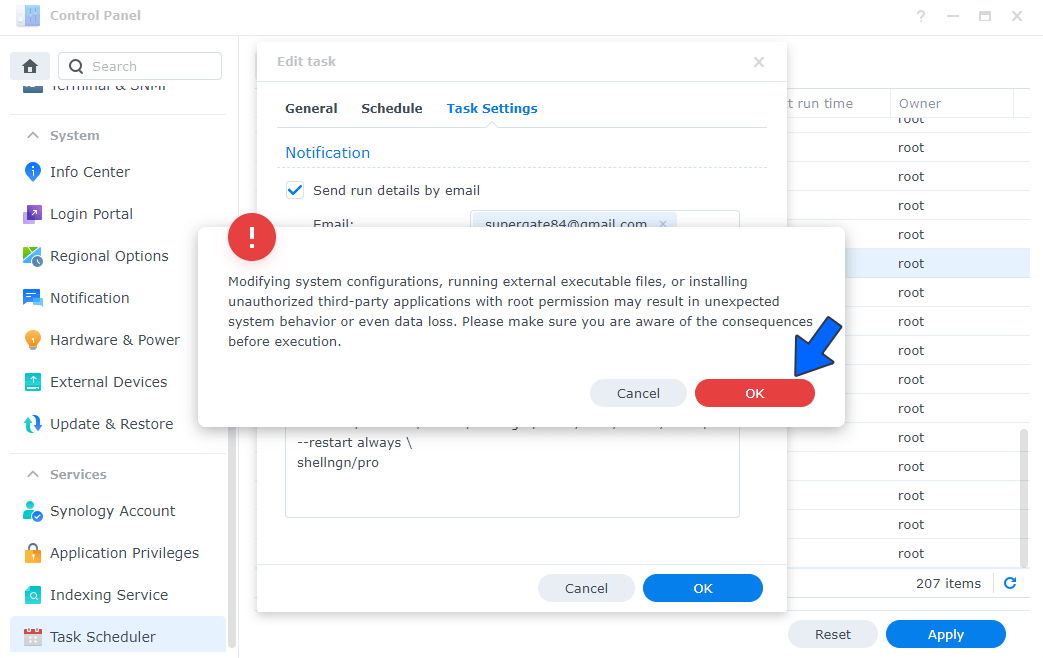
After you click OK, type in your DSM Password then click Submit. Follow the instructions in the image below.
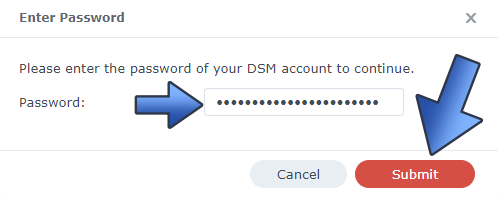
STEP 6
After you click Submit on STEP 5, select your “Install Shellngn” Task then click the “Run” tab. You will be asked to run Install Shellngn – click OK. Follow the instructions in the image below.
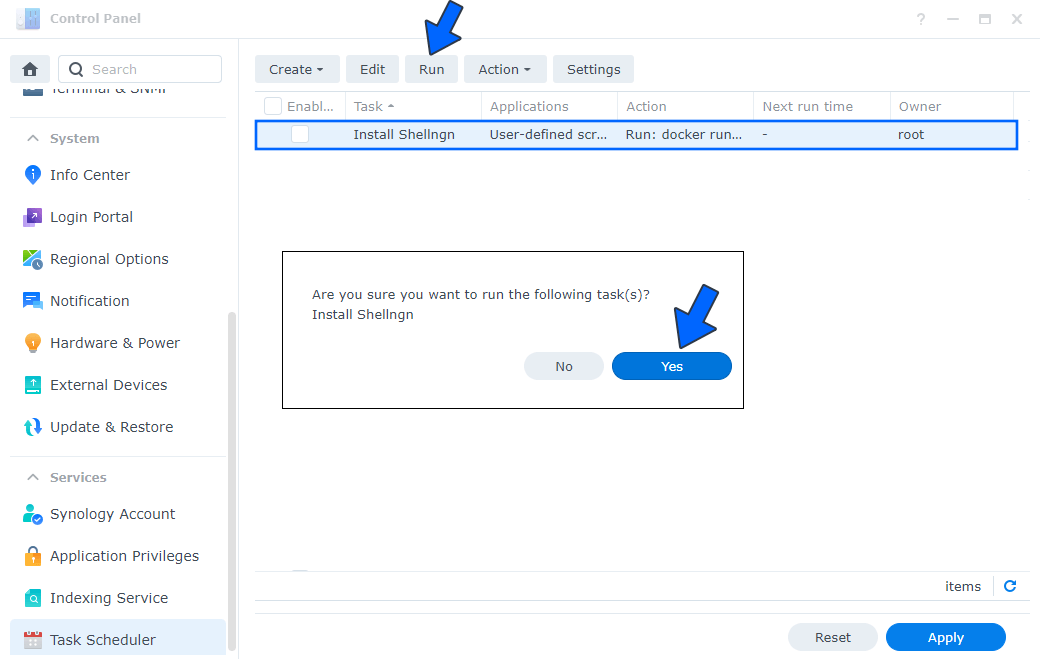
STEP 7
Enable SSH service on port 22 then click Apply. Follow the instructions in the image below.
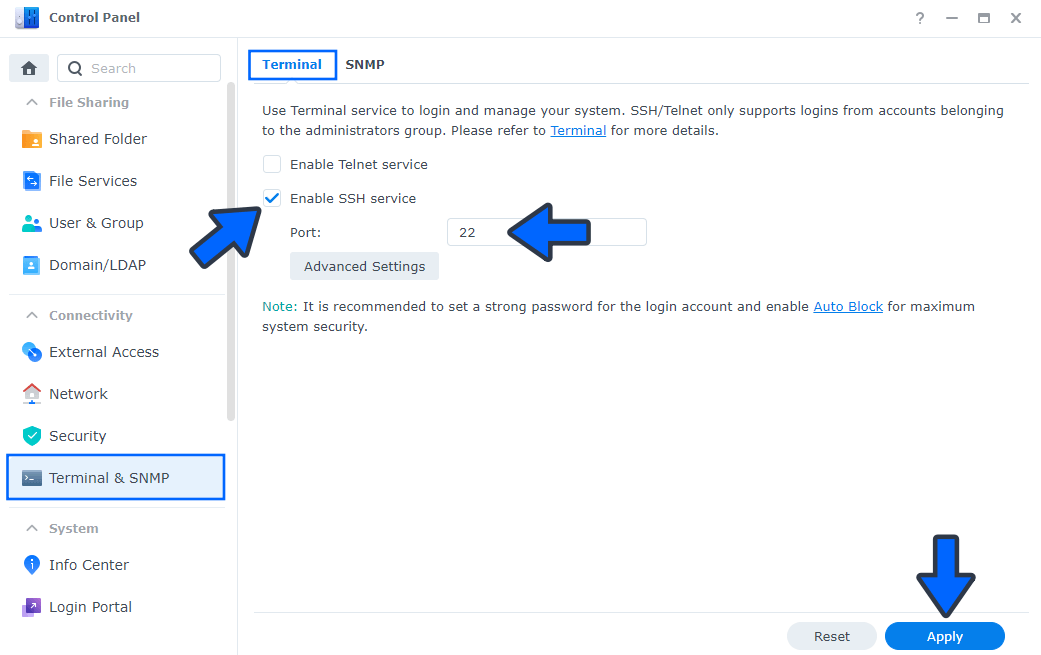
STEP 8
Adjust your Synology NAS Firewall. Go to Control Panel / Security / Firewall Tab / Click Edit Rules. In your current Firewall rules, create a new rule for the Encrypted terminal app. Follow the instructions in the image below. ⚠️Remember: your Encrypted terminal rule should be ABOVE the latest deny rule. Move it from the last position to first position.
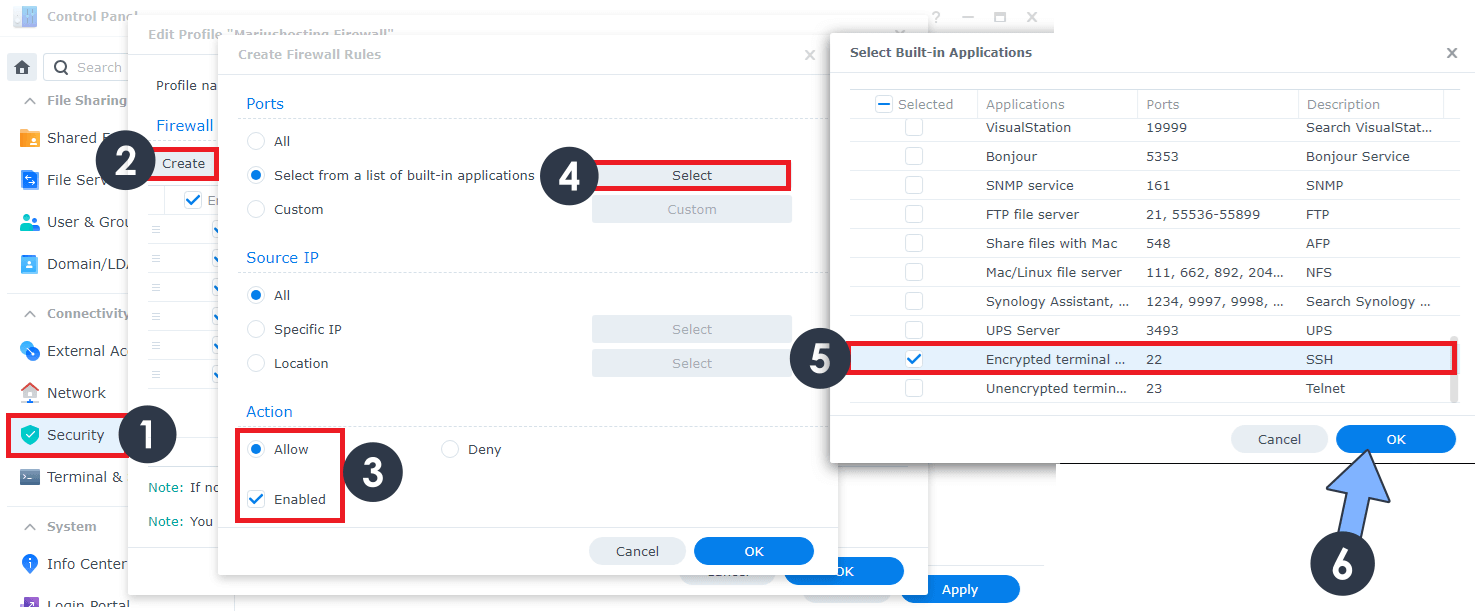
STEP 9
🟢Please Support My work by Making a Donation. Almost 99,9% of the people that install something using my guides forget to support my work, or just ignore STEP 1. I’ve been very honest about this aspect of my work since the beginning: I don’t run any ADS, I don’t require subscriptions, paid or otherwise, I don’t collect IPs, emails, and I don’t have any referral links from Amazon or other merchants. I also don’t have any POP-UPs or COOKIES. I have repeatedly been told over the years how much I have contributed to the community. It’s something I love doing and have been honest about my passion since the beginning. But I also Need The Community to Support me Back to be able to continue doing this work.
STEP 10
The installation process can take up to a few seconds/minutes. It will depend on your Internet speed connection. Now open your browser and type in http://Synology-ip-address:4199 Create a Username and a Password. Click Create. Follow the instructions in the image below.
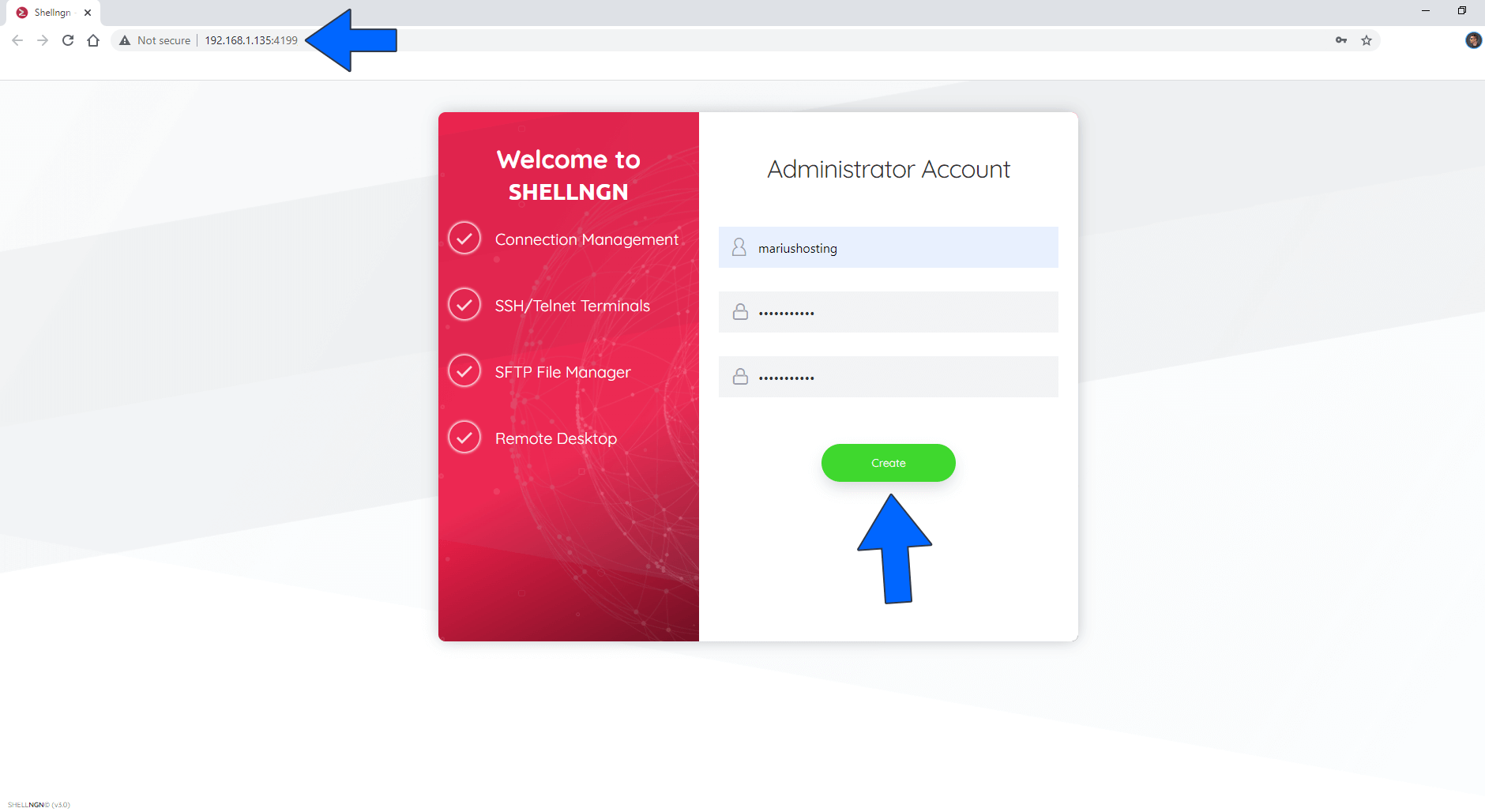
STEP 11
Choose between the Dark theme and the Light theme. Click Get Started. Follow the instructions in the image below.
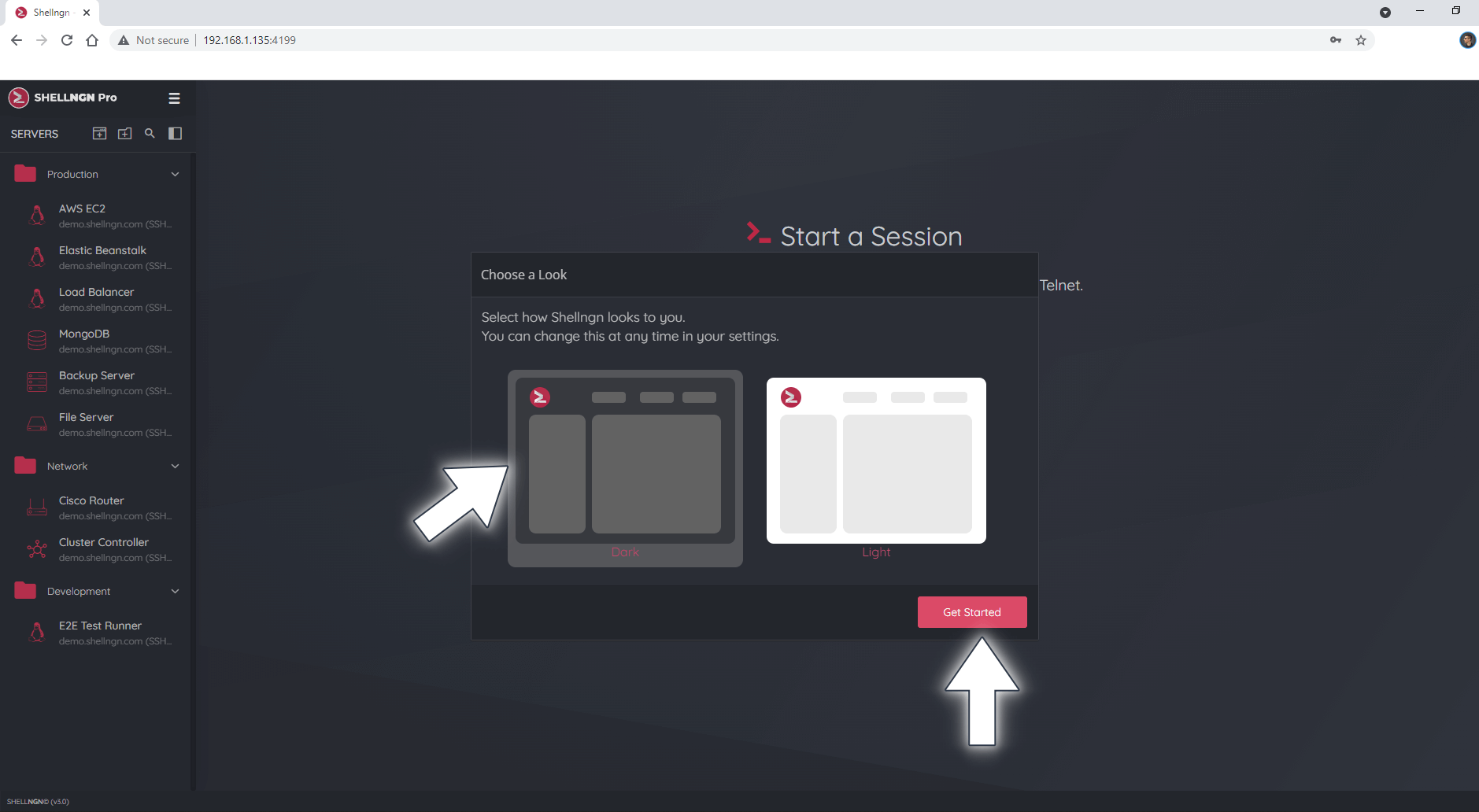
STEP 12
Click Add Server to add your own Server. Follow the instructions in the image below.
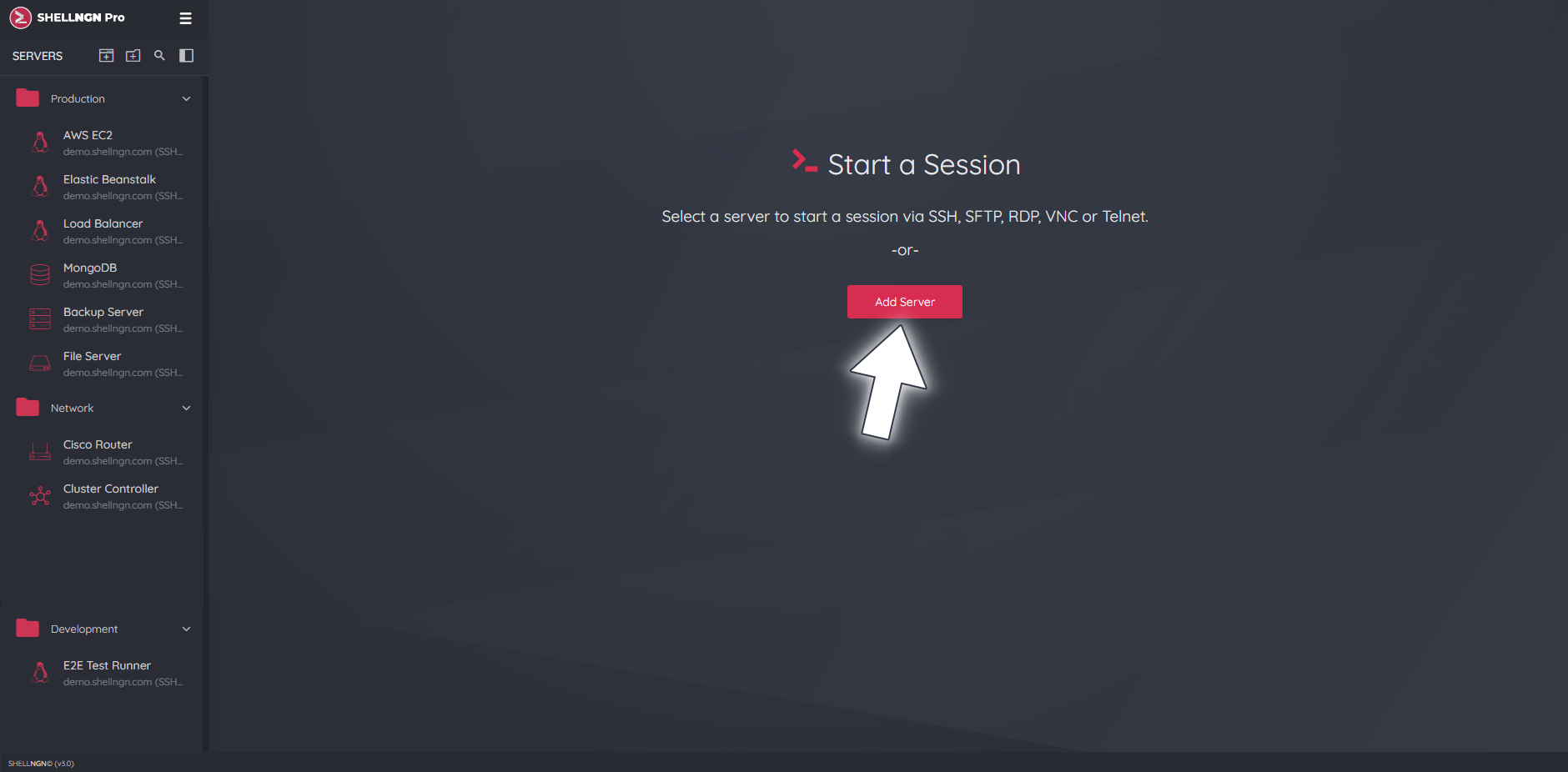
STEP 13
Start adding your own Server. In the example below I will add my Synology NAS credentials. Follow the instructions in the image below.
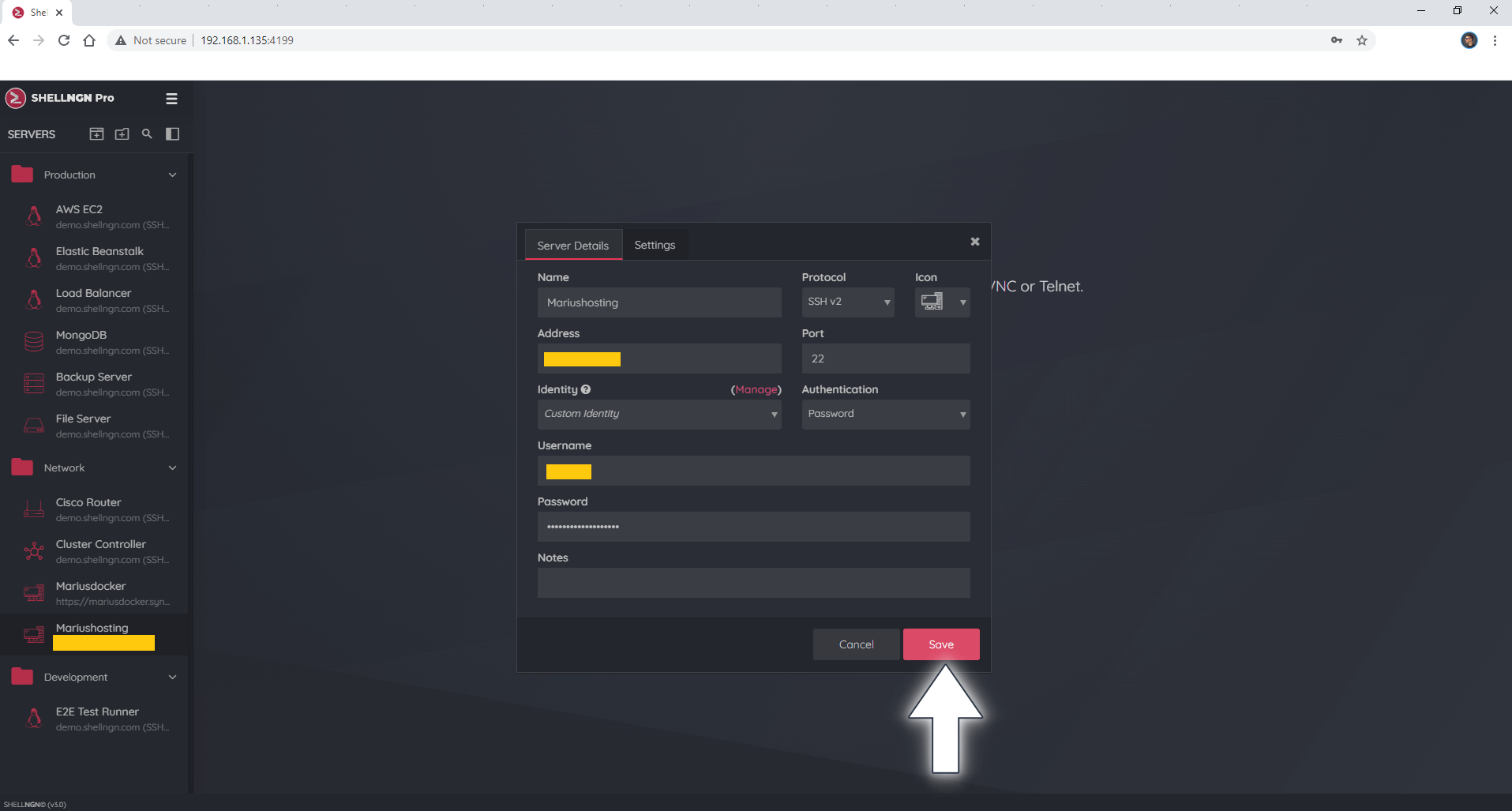
STEP 14
As you can see below the connection is successful.
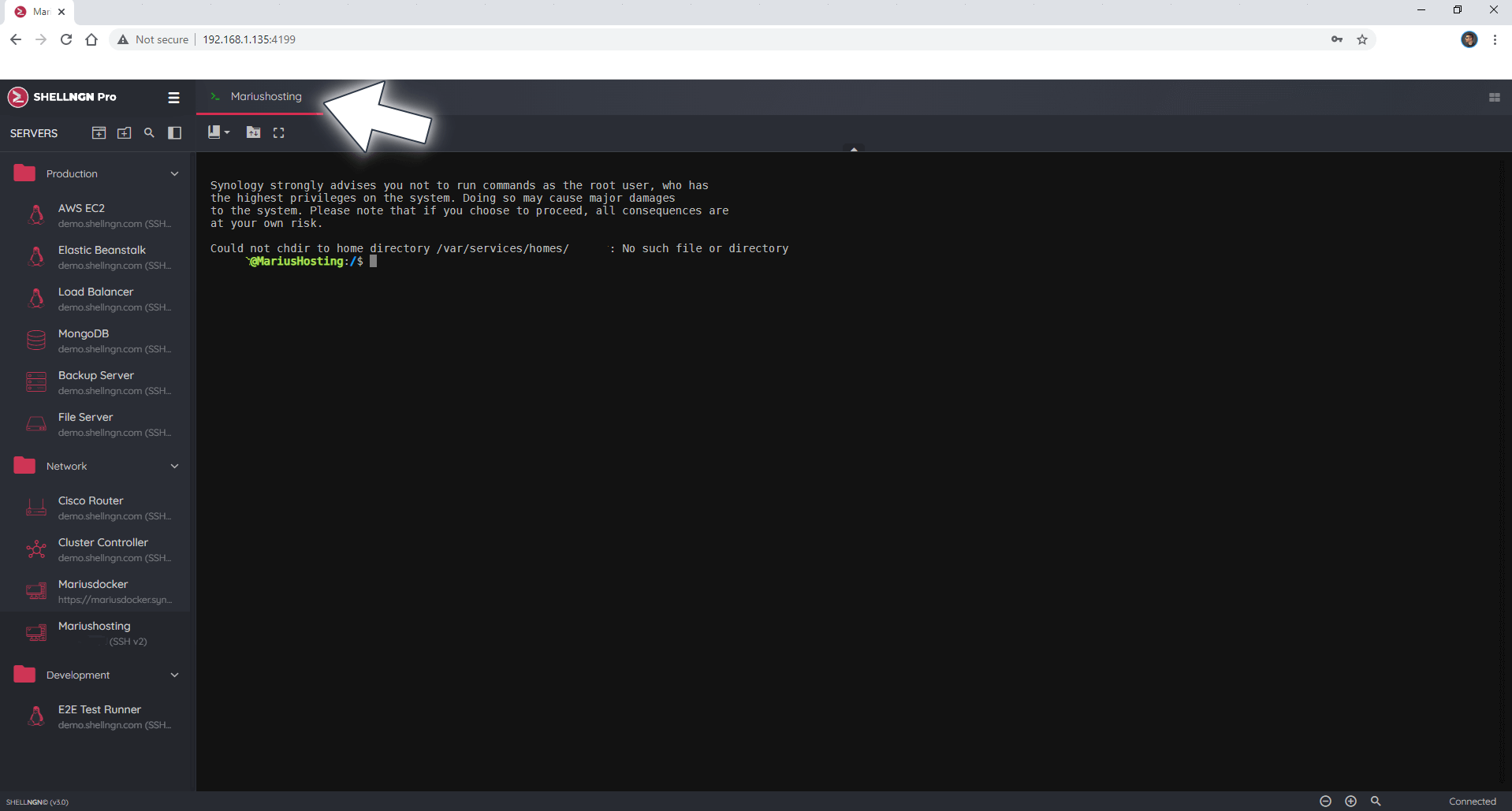
STEP 15
If you like the app, you can buy a cheap license for under 50$ a year. It also allows multiple users.
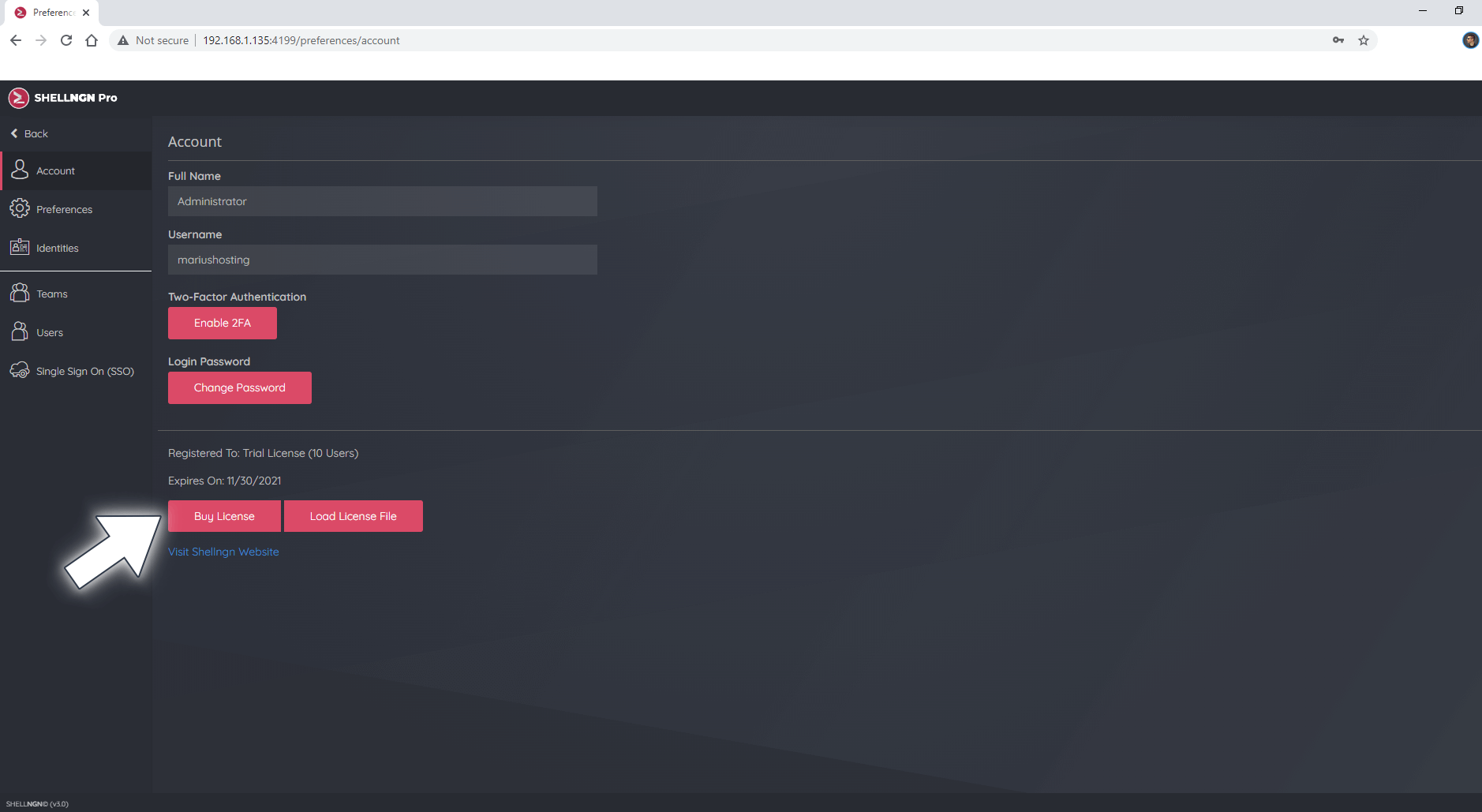
STEP 16
If you decide to uninstall the Shellngn container, at STEP 8, remember to uncheck the Encrypted terminal app and remove the firewall rule for port 22.
If you encounter issues by using this container, make sure to check out the Common Docker issues article.
Note: If you want to run the Shellngn container over HTTPS, check my guide on How to Run Docker Containers Over HTTPS. In order to make Shellngn work via HTTPS, it’s mandatory to activate WebSocket. After you have added your own Reverse proxy for DDNS, like shellngn.yourname.synology.me at STEP 13, you should add only your DDNS without shellngn on the address area. Example: yourname.synology.me
shellngn.yourname.synology.me will be used only to connect to the Shellngn web interface. Then the yourname.synology.me address should be used as an Address at STEP 13. Do NOT use https:// in front of your DDNS at STEP 13 on the Address area.
Note: Can I run Docker on my Synology NAS? See the supported models.
Note: How to Back Up Docker Containers on your Synology NAS.
Note: Find out how to update the Shellngn container with the latest image.
Note: How to Free Disk Space on Your NAS if You Run Docker.
Note: How to Schedule Start & Stop For Docker Containers.
Note: Remember to open port 22 on the server destination if you want to connect via SSH.
Note: If you need a free solution like Shellngn you can take a look at Remmina.
Note: How to Activate Email Notifications.
Note: How to Add Access Control Profile on Your NAS.
Note: How to Change Docker Containers Restart Policy.
Note: How to Use Docker Containers With VPN.
Note: Convert Docker Run Into Docker Compose.
Note: How to Clean Docker.
Note: How to Clean Docker Automatically.
Note: Best Practices When Using Docker and DDNS.
Note: Some Docker Containers Need WebSocket.
Note: Find out the Best NAS Models For Docker.
Note: Activate Gmail SMTP For Docker Containers.
This post was updated on Wednesday / January 8th, 2025 at 2:06 AM
